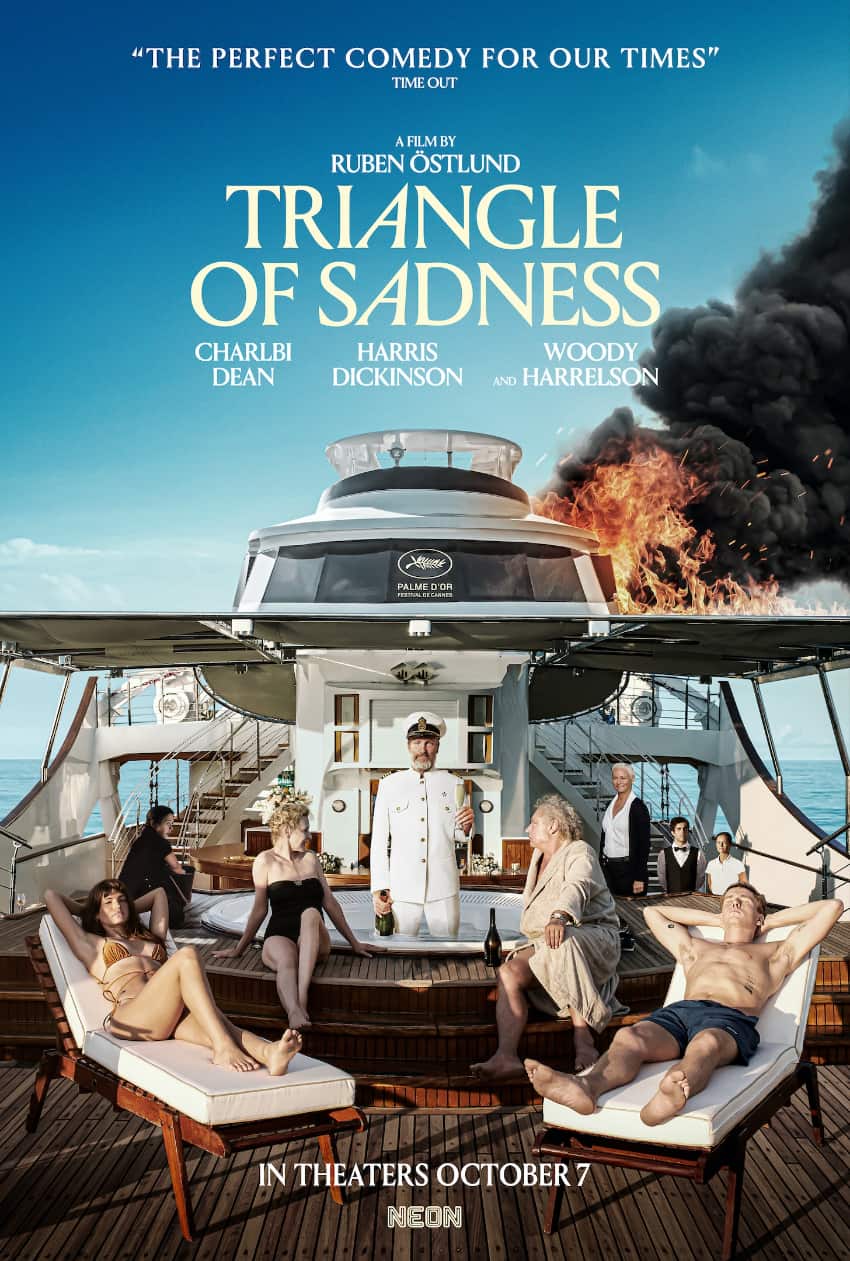If you are a cinema enthusiast, you might have seen “The Triangle of Sadness,” nominated for a series of awards last year, including the Oscar for Best Picture.
One of the many people who worked on this wonderfully bizarre production is Julio Chavezmontes, a film producer born and raised in Mexico City.
The producer first got his foot in the door of international cinema in 2013 when his horror film “Halley” was screened at the Sundance Festival. Halley was Julio’s first big project after earning an MFA from the Art Institute of Chicago and was co-written with Sebastian Hoffman, a colleague he met while working his first job in the film industry.
Julio and Hoffman’s creative bond led them to co-found their production company, PIANO, which aims to produce innovative and risky movies. Since then, the pair have received over 50 international awards and 100 nominations, including for the Golden Globes, BAFTAs, Palme d’Or at Cannes and the Oscars.
Julio has been interested in cinema since he was 19 years old when he began his undergraduate studies at the University of Chicago. When he walked into a Virgin Megastore and stood in front of the DVD sales screens and watched the first minutes of Jean Luc Godard’s “Le Mépris” (Contempt). “I understood that cinema could be something that went much further than what I had been exposed to,” he said.
Following the success of Halley, Chavezmontes has worked on big cinematic productions such as “Tiempo Compartido” (2018), starring actor Luis Gerardo Méndez; “Annette” (2020), with Adam Driver and Marion Cotillard; “Memoria” (2021) with Tilda Swinton; and most recently “Triangle of Sadness” (2022).

Having now worked in both Mexico and the United States, he reflects on the differences between the two – and why getting international acclaim for non-U.S. filmmakers is quite an achievement.
“In the U.S., you need a good amount of resources to be able to release a movie in theaters. It’s a country where slots in theaters are highly coveted, and on top of that, any campaign of distribution and publicity is very expensive. So the truth is that getting a movie to U.S. theaters is a huge achievement.” He added: “I think it’s important for movies to reach the U.S. so that Mexicans and Mexican-Americans who live there can be connected to the cultural patrimony that belongs to them.”
In Mexico, movie distribution cost is much lower, with incentives like EFICINE that provide aid for financing more independent or artistic films. “This of course helps promote independent cinema, which is always at a disadvantage against studio releases,” he said.
For a producer like Chavezmontes, who has an arthouse background and a “cultural or artistic rationality,” rather than a commercial one, his focus is on finding wide distribution for his work.
This is a shared goal among his Mexican colleagues and fellow filmmakers, he explained. “I think all that we’re interested in, that is a common goal among all of us, is that movies reach the public. Different movies have different audiences, and not every distribution strategy works the same for all movies.”
Unfortunately for independent filmmakers in countries outside of the U.S., as well as for movie aficionados globally, Hollywood’s monopoly on cinematic distribution and consumption makes achieving this goal very difficult.
“Those studios operate, and I don’t say this negatively, but they operate under a market logic where they make movies that will sell. … In the majority of cases, the commercial rationality is incompatible with the artistic or cultural one,” he said. There are exceptions to the rule however, as artists like Iñárritu, Cuarón, and del Toro have found a way to add their personal touch within the Hollywood studio ecosystem, “but it’s not the norm,” said Chavezmontes.
Nevertheless, there has been an undoubtedly positive shift within historically homogeneous award ceremonies like the Oscars in the past few years, with increased representation of international filmmakers. “What would make it even better would be for there to exist a more diverse ecosystem where financing is increased and there are different ways to exhibit and distribute movies that don’t exactly fit commercially,” Chavezmontes added.
Julio is outspoken about public policies that incentivize and strengthen the national film industry. “All of this is fundamental in increasing viewership and widening our audiences. There needs to be a greater investment in that.” He added that cultural and artistic works are “part of the country’s cultural patrimony, and so should be accessible for the majority of Mexicans.”
PIANO is currently finishing a documentary directed by Argentinian Lucrecia Martell and a movie called “El Jockey,” starring Nahuél Pérez, Daniel Gimenez Cacho and Ursula Corberó. Julio’s biggest production this year is a film called “La Desaparición” (“The Disappearance),” which tells the story of Josef Mengele, Auschwitz’s “Angel of Death,” as a fugitive in South America. The film is directed by Russian director Kirill Serebrennikov.
Expect to see more of Julio Chavezmontes in the years to come.
Montserrat Castro Gómez is a freelance writer and translator from Querétaro, México.
